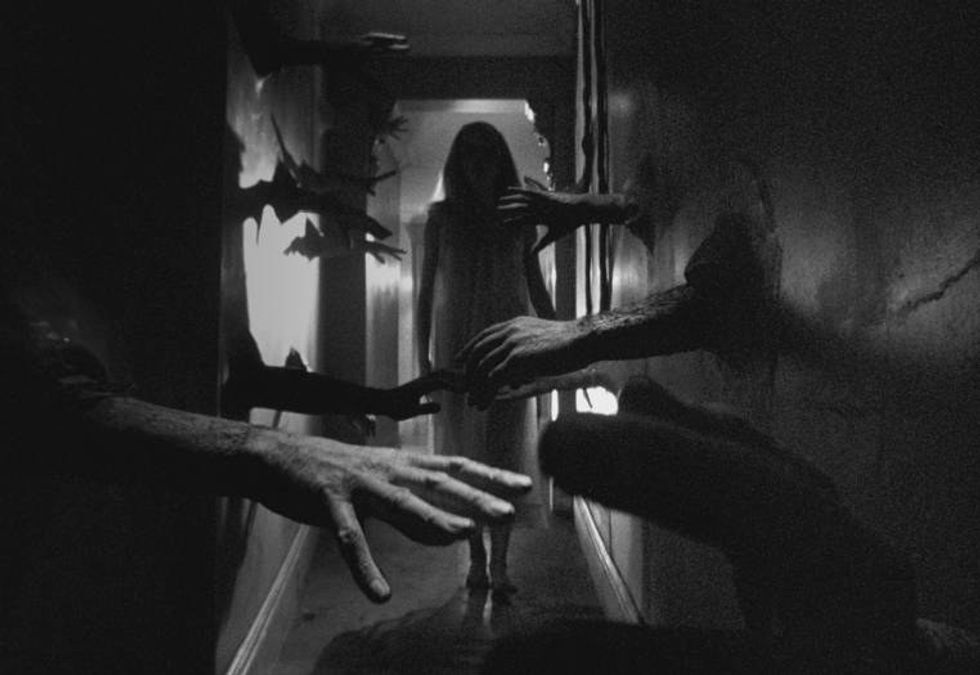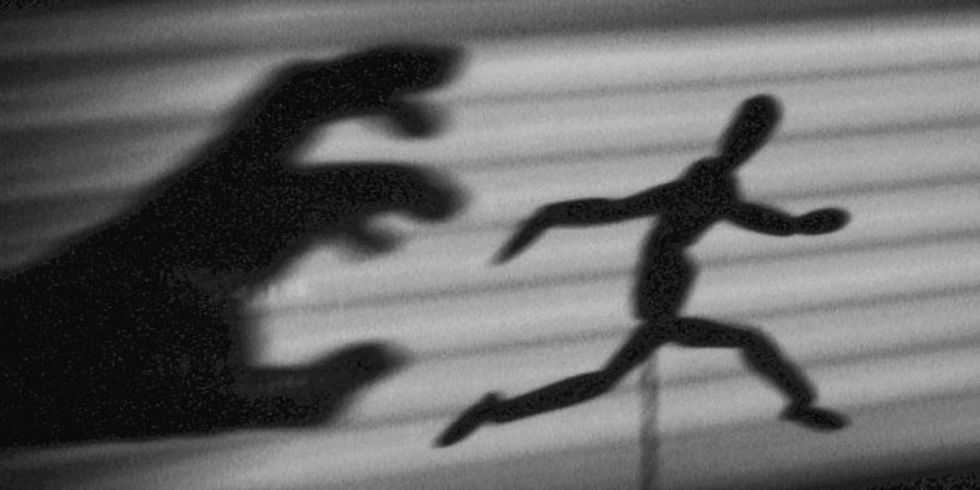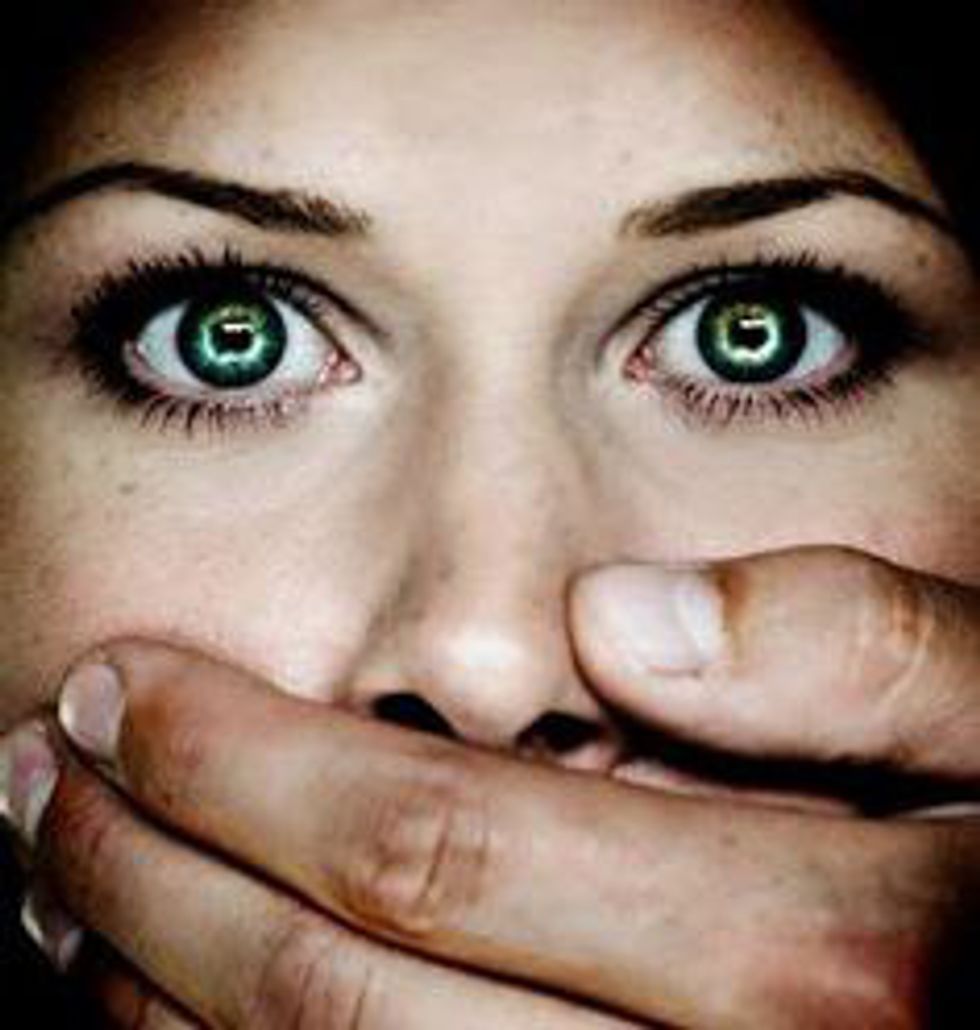Here’s the scene: a woman gets on the train on the way home. It’s nighttime. There’s a man sitting a few seats away. They are the only two in the train car. When she gets off at her stop, the man also gets off. She walks home, and the man goes in the same direction as her. She keeps walking, becoming more tense and more worried. She glances over her shoulder. She begins to think about what she will do if she is grabbed and attacked. The man goes off in another direction, and she is immediately relieved. She tells herself she's being dumb.
Most other women I’ve spoken to agree that this is an extremely relatable feeling. Actually, it is so normal an experience for women that we have become accustomed to brushing away such fears as they emerge as a reflex. But we cannot simply feel safe in such a situation, despite the lack of an objective threat. This isn't to say that we constantly feel unsafe, more that certain situations elicit tension and anxiety almost as if by instinct. It's a fight or flight response to what might occur, not what is. The female position in society impacts what kind of situations these are which bring about this uneasiness and exactly what type of violence they anticipate.
I feel that sometimes when a woman expresses she is uncomfortable with or fearful of a situation that is not blatantly threatening, our society does less listening and more denying. She must be crazy. Irrational. She just has low self-confidence; she’s uncomfortable in her own skin. There’s something wrong with her. Admittedly, I mostly see these comments from men. Before this as read as “man-hating,” I want to say that I see these types of comments from women, too. The difference is that most women generally understand and acknowledge these feelings as a reality, and men generally claim it’s all in our heads.
So, what am I talking about here? Those situations such as catcalling, walking alone at night, being stared at for a little too long or being “outnumbered” in an otherwise empty or sparsely place by males. These situations give no specific reason to be upset or tense, or assume that anyone is going to cause you any harm. I know this. Yet for some reason, myself and many women seem to find discomfort in them. Most of us quickly banish the thought that we will be hurt by these strangers, because we realize that it seems paranoid. Indeed, anyone reading who does not experience this odd sense of sudden tension and, frankly, fear will find this whole point ridiculous and silly.
However, I don’t find it to be ridiculous at all. I find it to be extremely indicative of our society and its power dynamics. It isn’t simply paranoia or coincidence. These fears have many roots and are complicated. I don’t believe it’s the men themselves that women are afraid of, more the convincing possibility of violence. In that moment, it feels very likely that harm will occur, and the danger that we can't directly point out feels absolutely real. I think that a main contributor is that we teach women that they are mostly responsible for preventing sexual assaults, rapes and violence against them by speaking, acting and dressing certain ways, carrying weapons as if preparing for battle to run an errand, sticking with a buddy at night at all times, because a lone woman is a target, and watching your drink constantly at a party.
I believe what is missing in this debate about catcalling and rape culture is a sense of empathy from those who do not understand how being female can impact social interaction and daily life. Besides the fact that such situations with a woman alone at night can and have led to stalking, harassment and assault, the truth of this discomfort is that it occurs with women of various ages, races and statuses. If these crimes do happen, often they can't be properly proven, the victims are blamed or mistreated, and the justice system makes a mockery of these victims. We may try to have a battle of statistics and numbers concerning whether there is a rape culture or if catcalling is really that big of a deal, but until we listen to this common experience among women and let go of the belief that they’re lying or embellishing, we can't actually make any progress. The reality is that experience cannot be erased or argued against with numbers, and it is important we recognize that these stories hold weight.
I have some personal experiences of my own. I once boarded the T (subway) with a friend after spending a few hours in a local coffee shop catching up. It was late, maybe about 10 p.m.. We got into an empty T car and sat next to each other. After one or two stops, three young men boarded the T and walked over to the car we were in. One sat across from us, one sat to our left, one sat right behind us. It was clear that the men were under the influence of something. Two of them did not ever say a word to us, simply looked at us. The man behind us, however, was quite vocal. My friend and I had both begun to feel tense the minute they entered the car. To ease and ignore this tension, as if following a script, we pulled out our phones. We stopped speaking to one another altogether, whereas before we had a lively conversation going. The atmosphere completely changed. The guy behind us began to talk critically about technology. How everyone was glued to their phones, how technology ruled people's lives, and if this were the '80s, what would we do with ourselves?We did not even glance at him, but instead of this making him leave us alone, he leaned closer, right behind us, and was reading my screen over my shoulder. “Don’t you agree, ladies?”
Now, I wanted to follow the suggestions that adults and some men seem to give all women in these types of situations of unwanted attention. Tell them to stop. Tell them to go away. Simple, right? So, why couldn’t I just say it? The problem was that there were three of them. There were two of us. They were bigger. Probably stronger. They were, quite literally, surrounding us. If they reacted negatively to our rejection, our telling him to leave us alone, there was no one around to stop them. These are serious considerations I took, and when talking to my friend about it later, she’d had the same thoughts. So instead of standing up and telling them to buzz off, we stood up and got off at the next stop. It wasn’t our stop. We had to wait for the next train, in a station that wasn’t ours, because three young men had made us both feel extremely threatened, and we felt we could not speak up.
This is a problem. It’s even more of a problem to point out that that wasn’t the first time this had happened to this same friend and me. The last time, we fled the T in quite a hurry after an older man staring at us, unwaveringly, moved seats to right in front of us to stare. He didn’t do anything, really. He didn’t say a word. But it was possibly the most alarmed I’ve ever felt. We both felt in danger. We left at the very next stop and practically jogged down the nearest well-lit street. We didn’t stop to navigate, we didn’t even care, for about a good five minutes. Once we were sure he hadn’t followed, we figured out where we were and where to go from there. We ended up taking a cab to our destination.
Just recently, I was working a closing shift. There are a few taverns nearby where I work, so it’s not uncommon to see intoxicated people come in. This time was different. I was working with one female coworker and one male. An extremely intoxicated man, his friend, and his girlfriend came in at around 8 p.m. The man was cheerful, nice and rambled the way drunk people often do. But he was also slurring and leaning forward over the counter more than most customers do. The other female coworker rung him up for the drink he ordered, and I made it for him. He sauntered over to the table to join his group.
The female coworker and I looked at each other in shared uncertainty. Our male coworker was in the back room doing dishes. A few minutes later, after I had decided I was being silly to feel uneasy about the man’s presence in the store, he approached the drink hand-off plane near the bar with his girlfriend next to him, again standing much too close to the counter. He asked if his iced coffee was sweetened, because he’d ordered it unsweetened, and I told him no, but I could remake it. After I took back his iced coffee and handed him a new one, he began go on about how he definitely thought it was sweetened and that he even had his friend try it, and his friend agreed. He wasn’t reprimanding me, just talking. I nodded, not quite knowing what to say. Tension gnawed at the inside of my stomach.
He began to say how awesome it was that I remade it, and so quickly, too. He offered to tip us. At this point, the male coworker had heard what was going on, and was observing the situation, amused at the plain discomfort on my face. He stage-whispered to me about how I should tell the guy to tip a 20, take advantage. His girlfriend found this amusing, but I started to feel anxious. I just kept hearing myself saying, “That’s OK, have a nice night,” and he and his group finally left the store. The male coworker said the whole thing was hilarious, and he didn’t know why I didn’t accept the man’s offer to tip us. I explained how he was freaking me out and I just wanted him to get away from my bar. He completely did not understand that. After he left the area, I turned to my female coworker and asked if she was weirded out by that guy, or was that just me? She immediately agreed that she felt the same way. “I wanted him out of here,” she said. This, to me, clearly outlined difference in how men and women experience these specific situations.
I didn’t need much more to convince me that perhaps some men just did not ever experience that discomfort, stress and tension. They didn’t often feel anxious when someone happened to be walking the same direction as them at night. They didn’t glance back over their shoulders in restrained panic at the sudden thought that they might be attacked and think of all the advice they’d heard over the years. All right, slip your keys in between your fingers. Or if he tries to grab you, elbow him in the gut. Scream “fire” or “shark” because “rape” is less likely to get help (this is true), push his nose upward into his brain. Then having to quiet the fear and push away the thoughts, and having it all vanish once the person behind them turned down a different street. Maybe some men arguing against rape culture and the criticism of catcalling just weren’t familiar with these awful thoughts and feelings. It affects the way we move through society, our thoughts and even our behavior.
The next time a woman says she’s uncomfortable or wants you to leave her alone, the next time you try to make an advance, or you catcall a woman on the street and are met with silence and absolutely ignored, perhaps it’s not that she can’t take a compliment, she’s stuck up, she’s paranoid or that she has low self-esteem. Maybe, just maybe, she’s simply uncomfortable. Even if you might not understand the reason why because there’s no clear threat that you can see, I think we all owe it to a fellow human to listen and leave her alone. And before we convince women they need mental help, we might question why this is such a common and consistent phenomenon. We could learn a bit about the damaging effects, for both men and women, that our culture is causing.


























